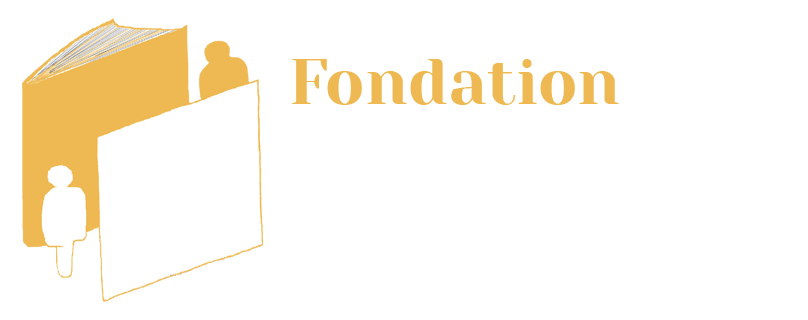Elie Aristide Astruc
Chief Rabbi of Belgium (1866-1879)Élie Aristide was born in Bordeaux in 1831 to an old Sephardic family from Avignon. After secondary studies at the Collège Royal de Bordeaux, a scholarship from the Jewish community of Bayonne brought him to the Rabbinical School of Metz in 1851. He was apparently the first student of the Jewish communities of the southwest. After completing his studies in 1857, he was hired as an assistant rabbi to the Chief Rabbi of Paris and assigned to the Portuguese temple in Rue Lamartine. He also became chaplain to the Parisian high schools Louis le Grand, Vanves and Chaptal, as well as to hospitals and prisons. Finally, the religious education of several children of the Parisian Jewish aristocracy was entrusted to him, including that of Moses and Isaac de Camondo.
Astruc was one of the founders of the Alliance Israélite Universelle in 1860, a member of its provisional committee and secretary-general of the central committee before being elected to it in 1862 - he was a foreign member from 1868 and was re-elected until 1902. He was the delegate of the Bayonne community to the convention for the nomination of the Grand Rabbi of France in 1865. Astruc was brilliant and recognised as such. But his vision of a purified Judaism adapted to his century prevented him from claiming the highest functions of the rabbinate in his native country. It was therefore in his adopted country that he professed his synthesis of a rational Judaism. In 1866 he was elected Chief Rabbi of Belgium, where the Consistory, under the presidency of Louis Lassen, professed more progressive ideas. Liberal, freethinker, Freemason, Astruc was a member of the Brussels committee of the Ligue de l'Enseignement and an ardent defender of the separation between religion and civil society. Despite his convictions, he devoted a great deal of energy to defending the denominational cemeteries, playing a significant role in the debate that was shaking up politico-religious Belgium at the time. Astruc also responded to the postulatum presented to the First Vatican Council of 1870 by five hundred bishops, asking the assembly to send a paternal address to the Israelites, inviting them to recognise Jesus Christ as the Messiah. He did so in a sermon - The Decalogue. Réponse au postulatum des évêques du Concile (Brussels, 1870) - which caused a great stir, was published and distributed, and was reproduced in whole or in part in the French Jewish press, but also in certain Belgian and French press organs, A man of religion, combat and charity, and also an ardent patriot, Astruc was a member, during the Franco- Prussian war, of the Bread Committee, presided over by the Count of Mérode, with a view to helping prisoners and bringing food to the population at the time of the capitulation. In Belgium, Astruc was particularly active in the construction of the new synagogue in the rue de la Régence in Brussels, completed in 1878. The following year he resigned from his position as Chief Rabbi to devote himself, in his own words, to the education of his children. Élie Aristide Astruc returned to Paris, where he stayed for a few years, before serving again as rabbi, this time in Bayonne, from 1887 to 1891. He returned to Brussels to end his life, where he died in 1905.
Astruc, in addition to being a talented orator, renowned for the quality of his sermons, was also a brilliant writer, collaborating in particular with the Archives Israélites from 1864 and with L'Univers Israélite from 1880. He wrote a pamphlet full of vigour against ultramontanism in 1859 (Les Juifs et Louis Veuillot), then a French translation of the main poems (piyutim) of the Sephardic liturgy, under the title Olelot Eliahu (1865). In 1869, the year in which he participated in the rabbinical synod of Leipzig, he published his abstract History of the Jews and their beliefs, which caused a certain sensation. In it he argued, in addition to the allegorical significance of certain miraculous stories in the Bible, for the moral superiority of religion over dogma. This last theme recurred in most of his main sermons, published under the title Entretiens sur le Judaïsme, son dogme et sa morale, in 1879; in particular, they exalted France, heir to the revolution which had granted emancipation, as the embodiment of a new messianism. Back in Paris, Astruc led a career as a publicist for several years. Finally, widely open to the secular and non-Jewish world, Astruc was also an outspoken Hellenist, a regular speaker at the Cercle artistique et littéraire de Bruxelles, founder with Joseph Cohen of the periodical La Vérité Israélite, and contributor to numerous reviews, including the Revue de Belgique. He was certainly a defender of the doctrine and morals of Judaism, but he was also a fine analyst of the Belgian political scene and particularly of the liberal world.
Abstract from: Jean-Philippe Schreiber, Dictionnaire biographique des Juifs de Belgique. Figures du judaïsme belge XIXe-XXe siècles, De Boeck & Larcier, 2002, pp.34-36

